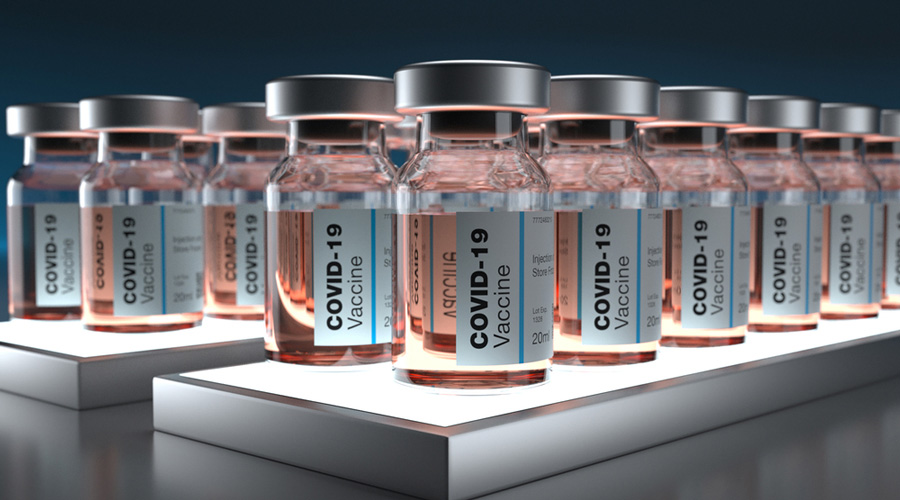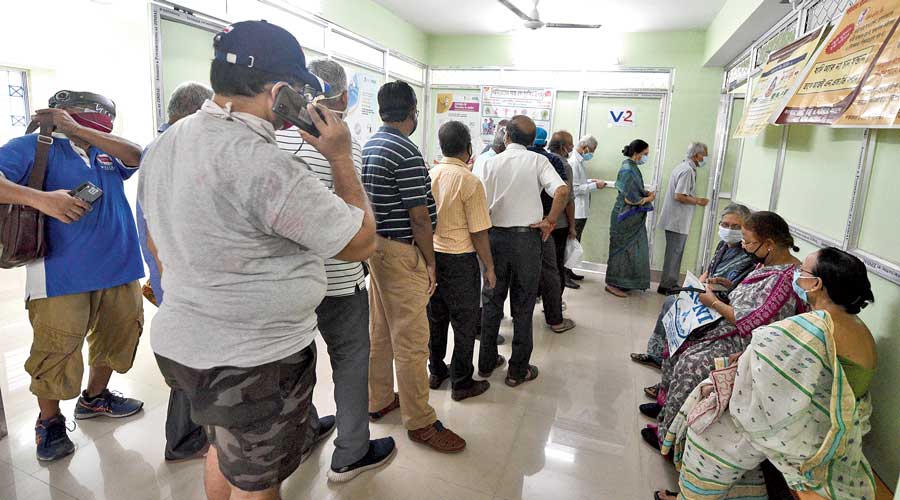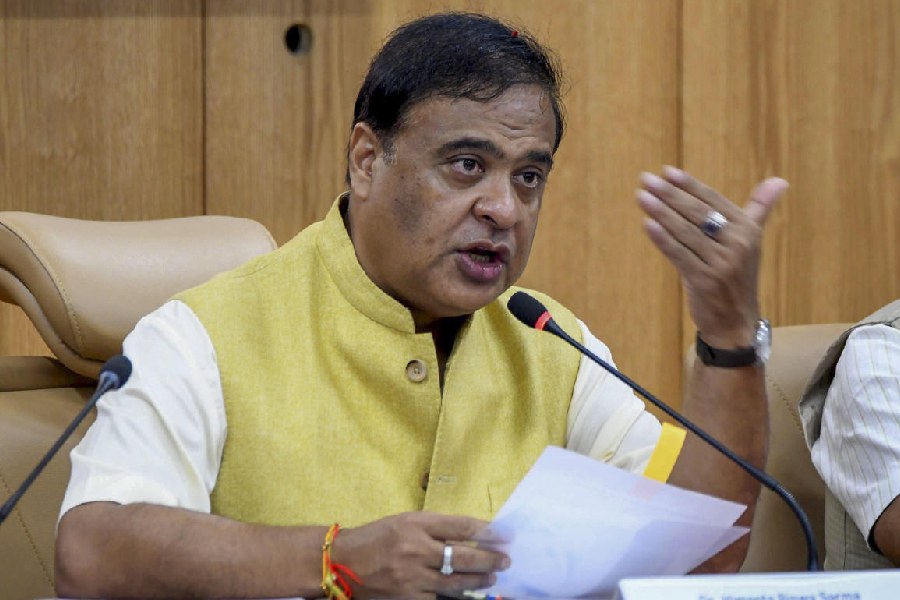The Centre on Monday virtually ruled out any immediate application of a legal provision that would have increased the production of Covid vaccines and life-saving drugs amid a shortage and helped lower their prices at a time the country is reeling under a resurgent pandemic.
It urged the Supreme Court to keep off the subject of the pricing of Covid vaccines and anti-viral drugs, and suggested that waiving intellectual property (IP) protection and granting compulsory licences to more manufacturers to boost production would be a “last resort”.
The government contended that the Serum Institute of India and Bharat Biotech had taken a “financial risk” in developing the Covishield and Covaxin vaccines, respectively, and warned the top court that “any overzealous” judicial intervention would lead to “unforeseen and unintended consequences”.
The bench of Justices D.Y. Chandrachud, L. Nageswara Rao and S. Ravindra Bhat, before whose virtual court the affidavit had been listed on Monday, could not take the matter up because of technical glitches and adjourned the hearing till Thursday.
Currently, Serum and Bharat Biotech enjoy a monopoly on manufacturing Covishield and Covaxin, courtesy their patent rights. Similarly, certain other companies have patent rights over anti-viral drugs like favipiravir, remdesivir and ivermectin that are often used to treat Covid patients.
Former Prime Minister Manmohan Singh, the Bengal government, several civil rights groups and some business chambers have sought compulsory licensing on these vaccines and drugs to meet the shortage the country faces.
On April 30, the apex court had asked the Centre whether it had considered such a move, allowed under Sections 92 and 100 of the Patents Act, 1970.
The Doha Declaration on Trade Related Intellectual Properties (Trips) too allows World Trade Organisation (WTO) countries to waive patent rights in matters of health emergencies and opt for compulsory licensing.
But the Centre’s affidavit asked the apex court to keep its hands off the matter and suggested that using these emergency powers could hurt the country. America’s Joe Biden administration had, however, last week announced its support for waivers of IP protection for Covid vaccines.
“In the context of a global pandemic, where the response and strategy of the nation is completely driven by expert medical and scientific opinion, there is even little room for judicial interference,” said the affidavit, filed through Govind Mohan, additional secretary with the home ministry.
“Any overzealous, though well-meaning, judicial intervention may lead to unforeseen and unintended consequences in absence of any expert advice or administrative experience, leaving the doctors, scientists, experts and executive very little room to find innovative solutions on the go.”
The Centre said that companies like Bharat Biotech and Serum “have taken financial risk in developing and manufacturing these vaccines and it is prudent to take decisions on pricing through negotiations in a transparent consultative process keeping statutory provisions as a last resort under the present circumstances”.
It said it intended to solve the problem of vaccine and drug shortage through “diplomatic efforts”.
“When there is a surge in cases and in demand of patented medicines/ drugs/ vaccines from all over the world the solution needs to be found out essentially at an executive level engaging at diplomatic levels,” the affidavit said.
“Any exercise of statutory powers either under the Patents Act 1970 read with Trips agreement and Doha declaration or in any other way can only prove to be counterproductive at this stage; the central government is very actively engaging itself with global organisations at a diplomatic level to find out a solution in the best possible interest of India.
“It is earnestly urged that any discussion or a mention of exercise of statutory powers either for essential drugs or vaccines having patent issues would have serious, severe and unintended adverse consequences in the (country's) efforts, being made on global platform using all its resources.”
The Centre has claimed the main constraint now is the availability of raw materials and essential inputs. It has cited the example of remdesivir, saying it has given licences to seven companies to manufacture the anti-viral drug.
“Therefore, any additional permissions and licences may not result in increased production immediately. It is difficult to predict the trend of the pandemic and therefore difficult to forecast the demand for remdesivir with a reasonable degree of certainty,” the affidavit said.
It said the Centre was striving to increase the availability of remdesivir through ramped-up production and imports.
The affidavit added that the Centre was monitoring the prices of drugs such as favipiravir, remdesivir and ivermectin, and stressed that Paragraph 20 of the Drug Price Control (Order) 2013 prohibited annual increases in minimum retail prices beyond 10 per cent.
Last October, India and South Africa had asked the WTO to waive IP protection to enable “unhindered global sharing” of knowhow and technology to make available diagnostic tools, medicines and vaccines to address the pandemic.











